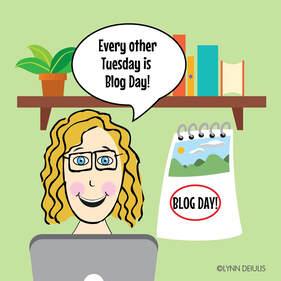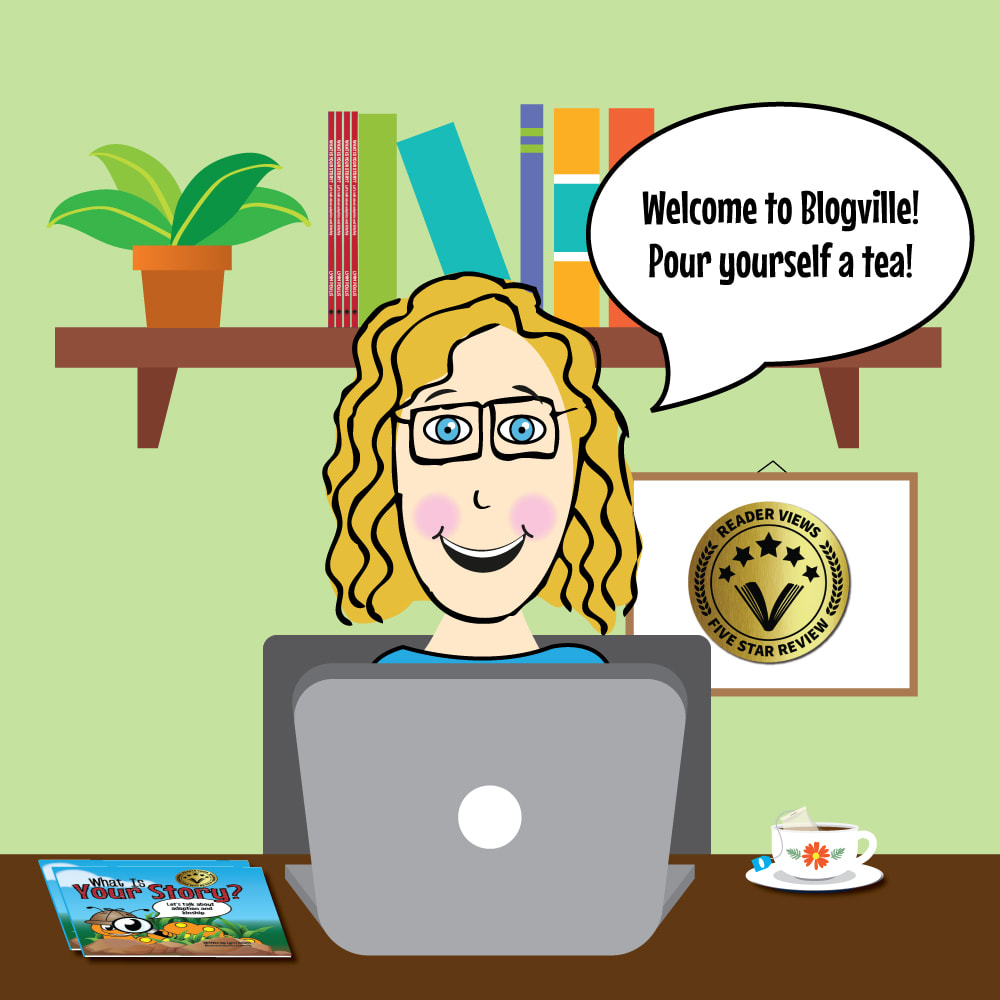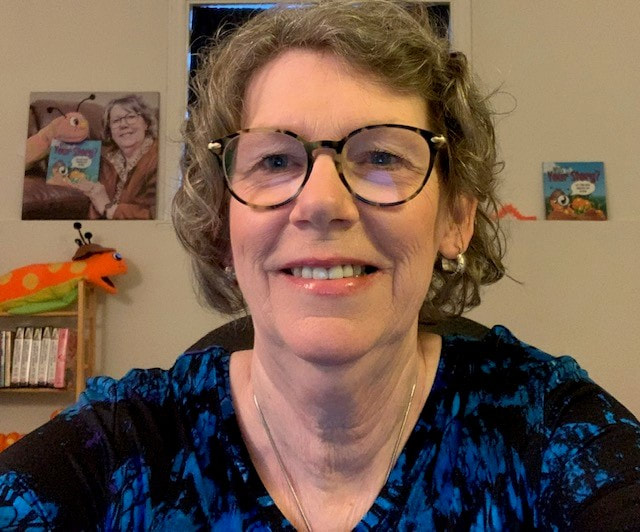|
The tea for this blog must be strong. This visit to Blogville might be hard. You might not be able to finish reading it all at once, and that is ok.
I never had the chance to celebrate even one of my birth mother’s birthdays with her. When I look at the family photos my birth half-sisters have of her 80th year celebration I immediately feel the absence of my older birth half-sister and I. We never met her, and she passed away. Do I even have the right to grieve? I have started and restarted this blog so many times because the topic is difficult. On the one hand, I’m so afraid of offending or even triggering anyone, but on the other hand, I think it needs to be talked about. It may validate, or even make sense, for so many other people when they are feeling their feelings. Maybe I am meant to be their voice. I am reminded of seeing an old black and white picture my birth father sent to me once I had found him. He was posing with his small children after a visit to the ice cream store. Each of them had a cone, and I distinctly remember strongly feeling, “Where is my ice cream?” I felt a great loss at that moment. Grief at not being a part of my birth father’s family, and sadness that I met him so late in life that we had so little time to get to know each other. I felt a loss that his other children, my paternal half-siblings, were already adults. I want to talk about rejection in this blog. I want to qualify that this is my experience, and mine alone, however, I feel there may be meaning in here for others. Rejection in adoption can be a bit of a theme. Loss for birth parents is it’s own journey. When the pregnancy was discovered, they may have felt rejection from each other, from their families and friends, and even from their community. The mere fact that there were homes for unwed mothers to hide or be hidden in supports this concept. Many pregnant girls were rejected by their immediate circle and sent off to live with a ‘sick aunt’ in another community. For birth fathers who wanted to make a plan to take responsibility for the pregnancy, their thoughts and ideas were often rejected as their own future needed to be ‘protected’ in the bigger picture. The theme for birth parents? Rejection and powerlessness. Fact: Did you know that birth mothers did not, and do not, somehow rob their boyfriends of their sperm just to impregnate themselves? Something to think about. Loss for many adoptive parents begins when their own bodies rejected the idea of creating a biological child. For people struggling with infertility it may be a lonely journey, friends becoming uncomfortable sharing pregnancy news, baby shower invitations dwindling, society’s awkwardness apparent. Hormone therapy, temperature taking, intimate moments becoming clinical, all in an attempt to achieve what seems to come easy to everyone but them. Smiling through advice about relaxing and letting nature take its course. Listening to stories of people just having to ‘look at each other’ and finding themselves pregnant. More rejection by what feels like everyone around them, and by their own bodies. That is just the beginning for adoptive parents. Then they faced fear of being rejected during the adoption home study process or never being selected to parent a child. Loss of a dream. They fear that their family may not accept their adopted child. Then they fear that the adopted child might reject them as parents. Step-parent adoptions are not immune from feelings of loss and fears of rejection either. For the adopted child, rejection comes in many forms. Adoptees can only assume that the news of their existence was not a welcome experience for their birth parents. To be rejected before you are even born may not be felt in those critical nine months of gestation (that we know of anyway), but it is felt for life. How does one cope with their accidental existence? So, I was a ‘chosen child’. My point of view? That someone had to reject and release me, so that I could be chosen. For international adoptees I feel that they may experience even more levels of abandonment: first by their birth parents; then by their extended family; then by their community; and finally, by their whole country. Did no one value them enough to make a plan to keep them home? It is a lot of work to find value in yourself when your existence was and is surrounded by so much grief and loss . But adopted persons do it every, single, day. With or without support. So I want to talk to you about interacting with adopted people. This may not apply to all adopted people, but I believe it applies to many of us. Again, these are my own feelings and reactions, however, I don’t feel they are unique to me. In our interactions, if you reject me, or if I perceive you are rejecting me, I accept that I deserve it. After all, if my own birth parents did not want me, why would you? These types of feelings may be what you are facing from deep within the adopted person you love, and they cannot tell you because this sense of abandonment is buried so very, very deep. Some examples? When you look at your phone when I am talking to you, and then you don’t pick our conversation back up, I feel that what I had to say did not matter. I will likely never bring that topic up again. When you say you will help me with something, I trust you, and then if you forget, or make other plans, I feel I deserve your abandonment. I will figure out a way to get it done myself. When you spend time with other friends instead of me, I understand, but at the same time I feel that they are better friends than me. You value them more. Given that I was not valued by my own birth family, how can I expect anyone to really, truly, value me? In my case, if these things happen, you should picture a small blonde child covering her head with blankets, or pouting and stamping her foot, because she is my ‘child-me’ reacting. Please do not mistake this blog sharing as self-pity. I have already had so much loss. Losing people I care about is my greatest fear, and the fear of many adoptees, so I just wanted you to know. Why do you think I, and many adoptees, are such people-pleasers? If you ever meet me, you will meet a strong, confident person who appears to be very self-assured. But if you don’t return my call, cancel a lunch date with me, criticize me (constructive or otherwise), or ignore me in some way . . . inside me a child hides and cries. I withdraw, not to punish you, but to punish me for thinking I deserved your attention, your friendship, your love. The people who were supposed to love me the most, did not value my existence, why should I expect you to love me or care about me? Oh and let’s not forget society’s obsession with the term “real parents”. Ironically, birth parents grieve the loss of their parental rights when society never seems to fully transfer them to the parenting parents. Side note, when people talk to birth parents about searching, do you think they ask if they want to find their ‘real child’? People used to ask if I wanted to find my real parents, and I continue to acknowledge my mom and dad as my real parents, and I not only met them, I grew up as their daughter. But, did I want to find the birth parents who created and then rejected me? YES!!! Unequivocally YES! But maybe not for the reasons society thinks. I needed to know why? What had I done that made them abandon me? I was just a tiny baby. Maybe if they can explain this to me I can forgive myself for having been created and causing them so much pain. But then, I am afraid. What if I find them and they reject me again? What if they tell me it really was my fault? From the birth parents’ perspective, I believe they are thinking, ‘what if my birth child finds me and hates me for what I did? What will my other children think of me if they know I had, and relinquished my rights to parent their sibling (half or full). What will my friends, coworkers, and extended family think of me? Will they still value me?’ For my birth mother, who declined the opportunity to meet my birth sister and I, I believe it was fear of this rejection that caused her to say no. I don’t need to tell you that accepting her decision to relinquish her parental rights to me as an infant was one thing, but her rejection of the adult me (no matter how valid her reasons) really left a mark. She has four beautiful daughters whom she raised with her husband in the way it ‘should’ be done. I think she feared what would happen to her relationship with them, and her grandchildren, if they learned about us. Would they no longer respect her? Would they think less of her? The sad truth is, when we met our birth sisters following her passing, they honestly wished that she had told them, and wished that she could have met us too. My birth sisters do not believe they would have felt any different about their beloved mother as a result of learning about us. I believe that what truly matters in adoption is: Do I have value? The answer is YES. You have and are living a life path. You matter to so many people and to yourself. Birth parents, your child is living a valued life because you allowed that to happen for them. Birth children, you are living your best life because of all the parents that you have or had. Adoptive parents, your child is living a valued life because you allow that to happen for them. Step-parents, your child is living a valued life because you allow that to happen for them. Kinship parents, your child is living a valued life because you allow that to happen for them. Whomever you are to a child, if you value them, you matter to them, no matter who or where you are. You know what my take away is from this? I am valued. Equally important is that I value others. I value them enough to hurt when they don’t have time for me, or when I feel rejected by them. I value them enough to keep trying and to keep working on the self-image of that little blonde girl in me so that she feels valued too, because in my heart, I know she truly matters to you! In my heart, I know that I matter to you, and to me, and that I am valued. Thanks for reading. As always, I would love to hear your comments. If you would prefer a less public forum, please email your comments to me at [email protected].
2 Comments
Joanne
6/7/2022 12:35:50 pm
Well written blog. I enjoy reading them very much. Thank you Lynn.
Reply
Your comment will be posted after it is approved.
Leave a Reply. |
Read More
July 2024
Categories |



 RSS Feed
RSS Feed